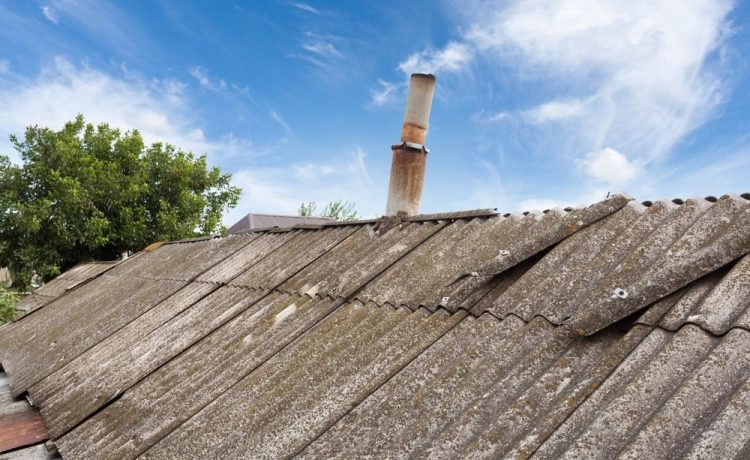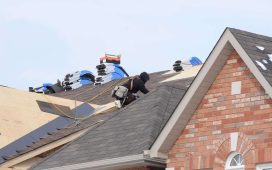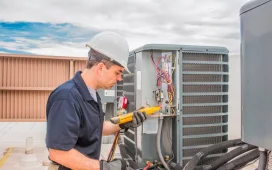Understanding Asbestos Exposure in Military Buildings and Homes
Asbestos exposure in military structures poses significant health risks to veterans. The widespread use of asbestos-containing materials in military construction prior to the 1980s increased the likelihood of exposure for service members.
Common Sources of Asbestos in Military Structures
Asbestos was prevalent in various military buildings and equipment due to its fire-resistant properties. Common sources include:
- Insulation: Pipes, boilers, and HVAC systems
- Flooring: Vinyl tiles and adhesives
- Roofing: Shingles and felt
- Walls: Drywall, joint compounds, and cement sheets
- Shipyards: Engine rooms, boiler rooms, and navigation rooms
- Aircraft: Brake pads, gaskets, and insulation
- Vehicle components: Clutch plates and brake linings
Health Risks Associated with Asbestos Exposure
Prolonged asbestos exposure can lead to severe health complications:
- Mesothelioma: Rare cancer affecting the lining of the lungs, chest, or abdomen
- Lung cancer: Malignant tumors in the lungs
- Asbestosis: Scarring of lung tissue, leading to breathing difficulties
- Pleural plaques: Thickening of the lung lining
- Pleural effusion: Fluid buildup around the lungs
These conditions often have long latency periods, sometimes taking 20-50 years to develop after initial exposure. Veterans exposed to asbestos during their service may not experience symptoms until decades later, making it crucial to monitor their health and seek medical attention if respiratory issues arise.
VA Benefits for Asbestos-Related Illnesses
The Department of Veterans Affairs offers compensation and benefits to veterans suffering from asbestos-related illnesses due to military service exposure. These benefits aim to support veterans in managing their health conditions and associated expenses.
Qualifying Conditions for VA Compensation
Veterans diagnosed with specific asbestos-related illnesses qualify for VA compensation. These conditions include:
- Mesothelioma
- Lung cancer
- Asbestosis
- Pleural plaques
- Pleural effusion
- Interstitial pulmonary fibrosis
The VA evaluates each case individually, considering the severity of the condition and its impact on the veteran’s daily life. Compensation rates vary based on the disability rating assigned, ranging from 0% to 100%.
Proving Service Connection for Asbestos Exposure
To receive VA benefits, veterans must establish a service connection for their asbestos-related illness. This process involves:
- Documenting in-service asbestos exposure
- Providing medical evidence of a current asbestos-related diagnosis
- Obtaining a medical opinion linking the current condition to military asbestos exposure
Veterans submit evidence such as military records, job assignments, and medical documentation to support their claims. The VA considers factors like the duration and intensity of asbestos exposure, the veteran’s occupation during service, and the time elapsed between exposure and illness onset when evaluating claims.
Filing a VA Claim for Asbestos Exposure
Veterans exposed to asbestos during military service can file a claim with the VA for compensation. The process requires thorough documentation and understanding of the VA’s procedures.
Required Documentation and Evidence
Filing a successful VA claim for asbestos exposure necessitates comprehensive documentation. Veterans must provide:
- Military service records detailing assignments and locations
- Medical records showing diagnosis of an asbestos-related condition
- Nexus letter from a qualified physician linking the condition to military service
- Statements from fellow service members corroborating asbestos exposure
- Employment history post-military service
- Asbestos product identification documentation, if available
Veterans should gather as much evidence as possible to strengthen their claim. The VA evaluates each case individually, considering the extent and duration of asbestos exposure during service.
The Claims Process and Timeline
The VA claims process for asbestos-related conditions follows these steps:
- Submission of VA Form 21-526EZ (Application for Disability Compensation)
- VA review of the claim and supporting documentation
- Request for additional information or medical examinations, if necessary
- VA decision on the claim
The timeline for processing asbestos-related claims varies:
- Initial review: 30-90 days
- Complete processing: 6-12 months
- Complex cases: 12-18 months or longer
Veterans can expedite their claims by:
- Submitting a Fully Developed Claim (FDC)
- Responding promptly to VA requests for information
- Attending all scheduled medical examinations
The VA provides regular updates on claim status through their online portal or by phone. Veterans facing financial hardship or severe health issues can request priority processing of their claims.
Types of VA Compensation Available
The VA offers two primary forms of compensation for veterans exposed to asbestos. These benefits aim to support veterans and their families affected by asbestos-related illnesses.
Disability Compensation
Disability Compensation provides monthly payments to veterans with service-connected disabilities. For asbestos-related illnesses, the VA assigns disability ratings based on the severity of the condition. Ratings range from 0% to 100%, with higher percentages resulting in larger monthly payments. Veterans with mesothelioma typically receive a 100% disability rating due to the severity of the disease. The compensation amount varies depending on the veteran’s disability rating, number of dependents, and additional factors such as the need for aid and attendance.
Dependency and Indemnity Compensation (DIC)
DIC is a tax-free monetary benefit paid to eligible survivors of veterans who died from service-connected disabilities. In cases where a veteran’s death is attributed to an asbestos-related illness connected to their military service, their surviving spouse and dependent children may qualify for DIC benefits. The monthly DIC payment rate is standardized, with additional amounts available for dependent children. Eligible survivors must provide evidence linking the veteran’s death to their service-connected asbestos exposure. The VA considers factors such as the veteran’s service history, exposure records, and medical evidence when determining DIC eligibility.
Additional Resources and Support for Veterans
Veterans exposed to asbestos have access to various resources and support systems. These resources aim to assist veterans in navigating the complexities of asbestos-related health issues and VA benefits.
VA Health Care Services for Asbestos-Related Conditions
The VA provides comprehensive health care services for veterans with asbestos-related conditions. These services include specialized treatments, regular health screenings, and access to pulmonary specialists. Veterans enrolled in VA health care receive priority access to state-of-the-art diagnostic tools and treatment options for asbestos-related illnesses. The VA’s network of hospitals and clinics offers respiratory therapy, oxygen therapy, and palliative care for advanced cases. Veterans can also participate in clinical trials and research studies focused on improving treatments for asbestos-related diseases.
Veterans Service Organizations and Legal Assistance
Veterans Service Organizations (VSOs) offer invaluable support to veterans dealing with asbestos-related issues. These organizations provide free assistance with VA claims, offer guidance on navigating the benefits system, and advocate for veterans’ rights. Accredited VSO representatives help veterans gather necessary documentation, file claims, and appeal denied claims. Organizations like the American Legion, Veterans of Foreign Wars (VFW), and Disabled American Veterans (DAV) have extensive experience in handling asbestos-related cases.
Legal assistance is available for veterans seeking compensation outside the VA system. Specialized law firms focus on asbestos litigation and can help veterans pursue claims against asbestos manufacturers or other responsible parties. These attorneys work on a contingency basis, meaning veterans pay no upfront costs. Legal professionals assist in gathering evidence, filing lawsuits, and negotiating settlements to secure additional compensation for veterans and their families affected by asbestos exposure.
Veterans exposed to asbestos during their military service face significant health risks and challenges. The VA’s recognition of these risks and provision of compensation offers crucial support. Veterans should remain vigilant about their health and understand their rights to benefits.
Navigating the claims process can be complex but thorough documentation and persistence are key. The VA’s comprehensive approach to evaluating claims ensures fair consideration of each veteran’s unique circumstances. With various resources and support systems available veterans can access the care and compensation they deserve for their service-related asbestos exposure.
















